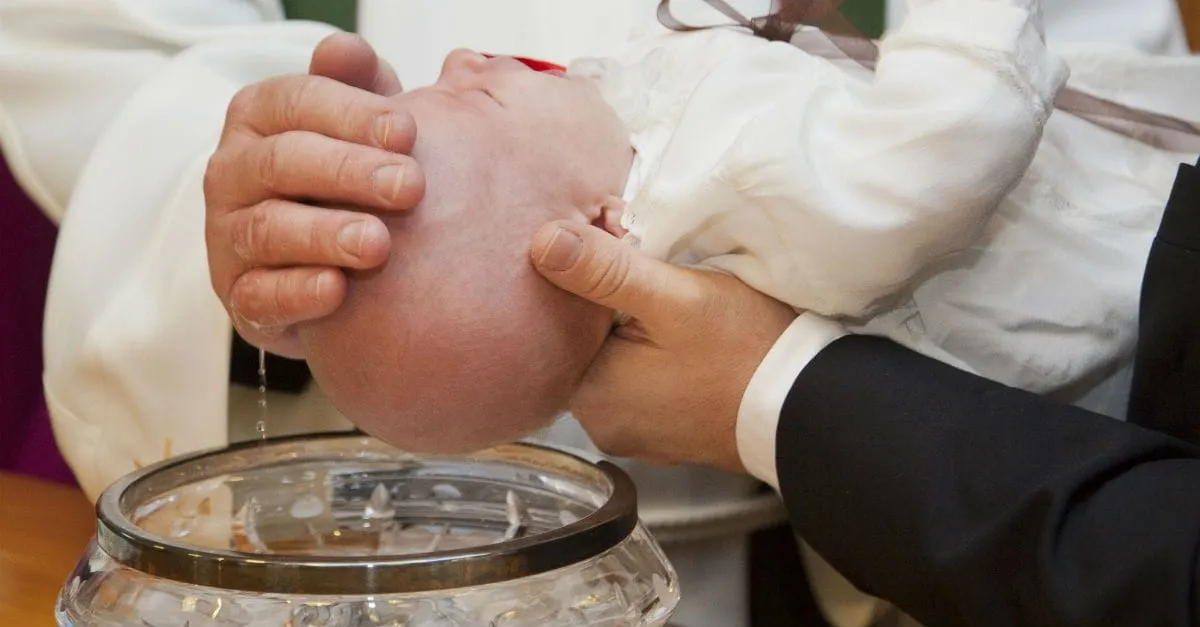Do You Have To Be Baptized To Be A Christian?
Christianity is the largest religion in the world, with over 2 billion followers. Faith in Jesus Christ binds this diverse group together, but there are many denominations within Christianity that differ in their doctrines and practices.
If you’re short on time, here’s a quick answer to your question: While baptism is an important ritual in Christianity and most denominations encourage it, it is not an absolute requirement for salvation in many Protestant traditions.
Whether baptism is necessary for Christianity is a complex theological issue with varied perspectives.
In this approximately 3000 word article, we will dive into the different beliefs about baptism, its history in Christianity, the Biblical basis, and the perspectives of specific denominations and prominent Christian thinkers on this topic.
The Role and History of Baptism in Christianity
The Origin and Early Practices of Baptism
Baptism has been a significant sacrament in Christianity since its inception. Its origin can be traced back to the time of Jesus Christ, who was himself baptized by John the Baptist in the Jordan River.
In the early days of Christianity, baptism was primarily performed as an act of purification and initiation into the faith. It symbolized the forgiveness of sins and the acceptance of Jesus as the Savior.
Early Christian communities practiced baptism through immersion in water, symbolizing the washing away of sins and the resurrection of Christ. This form of baptism was often conducted in natural bodies of water, such as rivers or lakes.
As Christianity spread and became more established, baptismal fonts and pools were created within churches for the convenience of believers.
Infant vs. Believer’s Baptism
One of the key debates in Christianity is the question of whether baptism should be performed on infants or believers. The practice of infant baptism, also known as pedobaptism, emerged in the early centuries of the Church.
It is based on the belief that baptism is necessary for the salvation of infants and that it cleanses them from original sin.
On the other hand, believer’s baptism, also known as credobaptism, is the practice of baptizing only those who have made a conscious decision to follow Christ and have professed their faith. This form of baptism is more common among Protestant denominations.
Both practices have biblical support and historical precedent. Infant baptism can be traced back to the early Church, while believer’s baptism is based on the New Testament accounts of adult conversions and baptisms.
Ultimately, the choice between the two practices depends on individual beliefs and denominational traditions.
The Importance and Meaning of Baptism
Baptism holds deep significance in the Christian faith. It is seen as a public declaration of one’s faith and a commitment to follow Christ. Through baptism, believers are united with Christ in his death and resurrection, symbolizing their spiritual rebirth and new life in Christ.
Baptism is also seen as a means of receiving God’s grace and the Holy Spirit. It is believed to be a sacrament through which God imparts his blessings and forgives sins. Many Christians view baptism as a necessary step in the journey of salvation, emphasizing its importance in the process of becoming a Christian.
It is important to note that while baptism is a significant rite in Christianity, it is not the sole determinant of one’s salvation. The beliefs and actions of an individual are equally important in their relationship with God.
Baptism serves as a visible sign of an inner transformation and a commitment to live according to Christian principles.
For more information on the role of baptism in Christianity, you can visit the Bible Study Tools website, which provides in-depth resources on this topic.
What the Bible Says About Baptism
Baptism is an important sacrament in Christianity, symbolizing the believer’s identification with Jesus Christ’s death, burial, and resurrection. It is a practice that has been followed by Christians for centuries, but the question remains: do you have to be baptized to be a Christian?
Let’s explore what the Bible has to say about baptism.
Jesus’s Baptism
The concept of baptism is introduced in the Bible through the baptism of Jesus by John the Baptist. In Matthew 3:13-17, it is recorded that Jesus himself was baptized in the Jordan River. This event signifies Jesus’s obedience to God’s will and his identification with humanity.
While Jesus did not need to be baptized for the forgiveness of sins, his baptism serves as an example for believers to follow.
Baptism in the Gospels
In the Gospels, we find Jesus commissioning his disciples to go and make disciples of all nations, baptizing them in the name of the Father, the Son, and the Holy Spirit (Matthew 28:19). This commandment implies that baptism is an essential part of the Christian faith.
In Mark 16:16, Jesus states that “Whoever believes and is baptized will be saved.” This verse suggests that baptism is closely linked to salvation.
Baptism in the Epistles and Acts
In the epistles and the book of Acts, we find further evidence of the significance of baptism in the Christian faith. In Romans 6:3-4, the apostle Paul writes, “Do you not know that all of us who have been baptized into Christ Jesus were baptized into his death?
We were therefore buried with him through baptism into death in order that, just as Christ was raised from the dead through the glory of the Father, we too may live a new life.” This passage emphasizes the transformative power of baptism, symbolizing the believer’s union with Christ and their participation in his resurrection.
In Acts 2:38, Peter tells the crowd, “Repent and be baptized, every one of you, in the name of Jesus Christ for the forgiveness of your sins. And you will receive the gift of the Holy Spirit.” This verse highlights the connection between baptism, repentance, forgiveness of sins, and the receiving of the Holy Spirit.
It suggests that baptism is not only a public declaration of faith but also a means through which believers receive God’s forgiveness and the indwelling of the Holy Spirit.
While the Bible does not explicitly state that baptism is a requirement for salvation, it consistently presents baptism as an important step in the life of a believer. It is a public declaration of one’s faith, a symbol of identification with Christ’s death and resurrection, and a means of receiving God’s forgiveness and the gift of the Holy Spirit.
Therefore, while baptism may not be necessary for salvation, it is a vital component of the Christian faith.
Perspectives on Baptism as a Requirement for Salvation
Catholic Viewpoint
In the Catholic Church, baptism is considered a sacrament that is necessary for salvation. They believe that baptism cleanses a person from original sin and initiates them into the Church. According to Catholic doctrine, baptism is a means of receiving God’s grace and becoming a member of the Christian community.
For more information, you can visit the official website of the Catholic Church: https://www.vatican.va/archive/ENG0015/_INDEX.HTM
Orthodox Viewpoint
Similar to the Catholic Church, the Orthodox Church also believes that baptism is necessary for salvation. They view baptism as a sacrament that unites an individual with Christ and grants them entry into the Church.
Orthodox Christians believe that through baptism, a person is united with Christ’s death and resurrection.
You can find more information on the Orthodox Church’s perspective on baptism at: https://www.oca.org/orthodoxy/the-orthodox-faith/worship/the-sacraments/holy-baptism
Lutheran Viewpoint
In the Lutheran tradition, baptism is seen as a means of grace and a sign of God’s covenant with believers. Lutherans believe that baptism is necessary for salvation, as it is through baptism that individuals are brought into the family of God and receive forgiveness of sins.
For more information, you can visit the official website of the Lutheran Church: https://www.elca.org/Faith/DailyBible
Reformed and Baptist Viewpoints
In the Reformed and Baptist traditions, baptism is seen as an important step of obedience and a public declaration of faith, but it is not considered necessary for salvation. These traditions emphasize a personal decision to follow Christ and believe that salvation comes through faith alone, not through any sacraments.
For more information on the Reformed perspective, you can visit: https://www.reformedworship.org/article/march-2002/what-are-sacraments-0
For more information on the Baptist perspective, you can visit: https://www.sbc.net/aboutus/basicbeliefs.asp
Pentecostal Viewpoint
In the Pentecostal tradition, baptism is seen as an essential part of the Christian experience. They believe in the baptism of the Holy Spirit, which they see as a separate experience from water baptism. Pentecostals emphasize the power and presence of the Holy Spirit in the life of a believer.
You can find more information on the Pentecostal perspective on baptism at: https://www.upci.org/what-we-believe/study-guide-articles/water-baptism
Non-Denominational Perspectives
In non-denominational Christian churches, perspectives on baptism can vary. Some non-denominational churches may view baptism as necessary for salvation, while others may see it as an important but not essential step in the Christian journey.
These churches often emphasize a personal relationship with Jesus Christ and the importance of faith in salvation.
For more information on non-denominational perspectives, you can visit: https://www.christianitytoday.com/ct/topics/n/non-denominational-church/
Being a Christian Without Baptism
One of the questions that often arises in discussions about Christianity is whether baptism is a requirement for someone to be considered a Christian. While baptism holds significant importance in many Christian denominations, there are differing views on its necessity for salvation.
Salvation by Grace Through Faith
Many Christians believe that salvation is received through faith in Jesus Christ alone, and that baptism is not a prerequisite for becoming a Christian. This belief is rooted in the idea that salvation is a gift from God, given freely by His grace, and cannot be earned through any human actions or rituals.
According to this perspective, one’s relationship with God is based on faith and trust in Jesus, rather than on any external acts such as baptism.
Supporters of this view often refer to biblical passages such as Ephesians 2:8-9, which states, “For it is by grace you have been saved, through faith—and this is not from yourselves, it is the gift of God—not by works, so that no one can boast.”
These verses emphasize that salvation is a result of God’s grace and not dependent on any human works, including baptism.
Baptism as an Outward Sign
On the other hand, many Christians view baptism as an important outward sign of one’s faith and commitment to Christ. They believe that baptism symbolizes the believer’s identification with Jesus’ death, burial, and resurrection, and serves as a public declaration of their faith.
According to this perspective, while baptism is not necessary for salvation, it is an essential step in the Christian journey and a visible expression of one’s faith.
Those who advocate for the importance of baptism often point to passages such as Acts 2:38, where Peter tells the people, “Repent and be baptized, every one of you, in the name of Jesus Christ for the forgiveness of your sins.”
They argue that this verse indicates that baptism is closely linked to repentance and forgiveness of sins, making it a significant part of the Christian experience.
Potential Challenges and Exclusion
The differing views on baptism can sometimes lead to challenges and even exclusion within Christian communities. Some churches may require baptism as a prerequisite for membership or participation in certain sacraments or practices.
This can create tensions between those who believe that baptism is necessary and those who hold the belief that it is not.
It is important to remember that while baptism is a meaningful and significant practice for many Christians, it is not the sole determining factor of one’s faith or salvation. Ultimately, the decision to be baptized or not should be a personal one, guided by one’s understanding of Scripture and their relationship with God.
For further information on this topic, you can visit GotQuestions.org, a website that provides biblical perspectives on various theological questions.
Considerations for the Unbaptized Christian
For many Christians, the question of whether baptism is a requirement for salvation can be a source of confusion and debate. While some denominations emphasize the importance of baptism as a sacrament, others believe that faith in Jesus Christ is the primary requirement for becoming a Christian.
If you find yourself in the position of being an unbaptized Christian, here are some considerations to keep in mind:
Study Biblical Teachings
One of the first steps in understanding the significance of baptism is to study the biblical teachings on the subject. Reading passages such as Matthew 28:19-20 and Acts 2:38-41 can provide insight into the importance of baptism in the early Christian church.
Additionally, exploring commentaries and resources from reputable biblical scholars can help shed light on different interpretations and perspectives on this topic.
Speak to Church Leaders and Members
Engaging in conversations with church leaders and fellow believers can also be helpful in gaining a better understanding of the role of baptism in Christianity. Church leaders, such as pastors or elders, can provide guidance and insight based on their theological training and personal experiences.
Additionally, speaking to other members of the congregation who have gone through the process of baptism can provide valuable perspectives and personal testimonies.
Consider Baptism When Ready
As an unbaptized Christian, it is important to take your time and prayerfully consider the decision to be baptized. Baptism is a public declaration of faith and commitment to Jesus Christ, and it is important to approach it with sincerity and conviction.
It may be helpful to discuss your thoughts and feelings with a trusted spiritual mentor or advisor to ensure that you are ready to take this step in your faith journey.
Focus on Faith in Christ
Ultimately, the most important aspect of being a Christian is having a personal relationship with Jesus Christ. Baptism, while significant, should not overshadow the central message of faith in Christ.
The Apostle Paul reminds us in Ephesians 2:8-9 that we are saved by grace through faith, not by any works of our own. Therefore, regardless of whether or not you have been baptized, the focus should always be on cultivating and growing in your faith in Jesus Christ.
For more information on baptism and its significance in Christianity, you may refer to trusted Christian websites such as GotQuestions.org or DesiringGod.org.
Conclusion
While baptism has been an integral part of Christianity from the very beginning, perspectives on whether it is necessary for salvation vary greatly.
Most mainstream Christian denominations encourage baptism but do not strictly require it for salvation. However, Catholics, Orthodox, some Lutherans, and others do see baptism as sacramentally regenerative and an entry rite into the church.
Ultimately, faith in Jesus Christ as Lord and Savior is the basis for salvation in Christianity according to the Bible. Sincere Christians can thoughtfully disagree on whether baptism is a prerequisite for salvation.
For those who consider themselves Christians but have not been baptized, focusing on spiritual growth through prayer, Scripture, and Christian fellowship allows one’s faith journey to continue, with baptism an option when the time is right.








